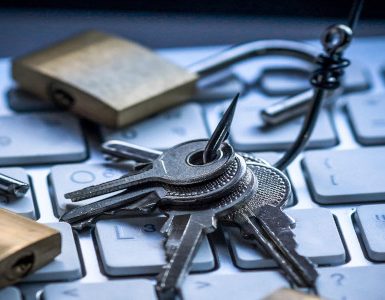The Internet of Things, as the name suggests, is a term referring to a network of countless “smart” devices that are all connected together, creating and sharing data with one another at all times. According to one recent study, there will be an incredible 35 billion devices connected to the Internet of Things as soon as the end of 2021. Flash forward just a few years to 2025, and that number will climb to 75 billion.
Smartphones. Smartwatches. Smart door locks. Fitness trackers. Security systems. You name it, if you can put a sensor in it and connect it to a wireless network, it can become a part of the IoT. These devices make our lives more efficient. They keep us informed. They save us money. But with so many different options available to us, it can be overwhelming to even figure out where to begin….. especially if you’re in the process of trying to figure out how to start leveraging the Internet of Things for your business.
Make no mistake: regardless of the type of company you run or even the industry you’re operating in, there is a place for the IoT in your organization. But the technology you’re talking about is nothing if not flexible – meaning that there is no “one size fits all” approach to buying into this once-in-a-generation technological revolution.
Thankfully, beginning your journey by making the wisest investment possible isn’t necessarily difficult. It will, however, require you to keep a few key things in mind.
The Enterprise Internet of Things: An Overview
Obviously, the ways in which you use the Internet of Things will vary depending on your business – but there are a few common use cases that you can use to help you get started. One of the most common of these has to do with connected vehicles, which are particularly important if you maintain something like a fleet that allows employees to service clients in the field.
One day, this conversation will be extended to include cars that drive themselves – but we’re not there quite yet. Instead, you’re talking about the types of sensors that constantly capture information about everything from road conditions to driver behaviors – all of which you can use to make more actionable decisions moving forward.
If you know the exact move that your drivers are making at all times, you can see which are practicing safe driving and which are not – thus cluing you into those employees who may need a little more training or continuing education. If you know the current status of the car’s engine at any given moment, you can be more proactive about maintenance and fix small problems before they have a chance to become much bigger ones.
Even connected GPS data can be huge, as you can give customers more accurate delivery estimates if you know where your drivers are in just a few quick clicks of your mouse. So not only does this type of technology help you improve the return on investment for your fleet, but it also helps you maintain critical customer relationships as well.
Another major area where the Internet of Things can be beneficial for businesses has to do with smarter security systems. Smart security systems don’t just record and store video information – they also analyze it as well. Artificial intelligence and machine learning can be used to instantly go over hours of video data so that you don’t have to, identifying people as they come and go for things like improved access control. You can even have the systems automatically alert you when a specific person arrives – dramatically improving your visibility into your physical working environment.
This is actually something that is already available to consumers thanks to HomeKit Secure Video Cameras, among others. Based on a real-time analysis of a video feed of your front door’s camera, your phone can literally tell you exactly who is at the door without having to look. The security implications of this technology for businesses are even bigger than that.
The Internet of Things is also a viable way to rapidly transform your supply chain, allowing you to both address the challenges of today and better prepare yourself for the ones of tomorrow, too. IoT sensors can be used to track items in a warehouse down to the aisle. You can monitor shipping container openings, room air quality and temperature, and more.
The point is, the key to taking advantage of the Internet of Things for your business requires you to stop looking at these smart devices as more than just minor conveniences. It’s less about what they can do in a literal sense – collect and share information – and has more to do with what that information can accomplish in the right hands.
When you start to think about the potential of the IoT from that point of view, options for deployment can’t help but reveal themselves for your situation.


















Add comment